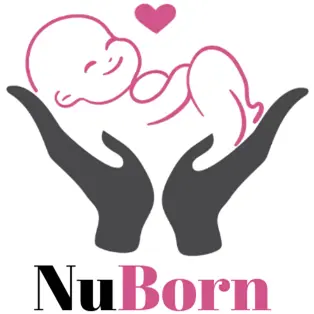Introduction
The journey of childbirth is a miraculous and profound experience, where every aspect of care is critical to ensuring the well-being of both the mother and the newborn. One of the challenges that healthcare providers and parents may encounter during childbirth is the presence of meconium in the amniotic fluid. Meconium, the baby’s first stool, can occasionally be passed in the womb before birth. In this blog, we will delve into the meaning of meconium in amniotic fluid, its prevalence, associated symptoms, and the importance of being vigilant and prepared for any potential criticality that may arise.
Chapter 1: Understanding Meconium in Amniotic Fluid
1.1 What is Meconium?
Meconium is a sticky, dark greenish-black substance that serves as the first stool passed by a newborn. It is composed of materials ingested by the baby while in the womb, such as amniotic fluid, skin cells, and other secretions. Understanding the composition of meconium is essential to grasp its potential implications.
1.2 Meconium in Amniotic Fluid: Prevalence and Incidence
The presence of meconium in amniotic fluid is not uncommon, with its occurrence reported in a significant percentage of births. We will discuss the prevalence and incidence rates, emphasizing that the majority of cases remain asymptomatic.
Chapter 2: Asymptomatic Meconium Passage
2.1 Most Cases: Asymptomatic Meconium Passage
In approximately 90% of cases, the passage of meconium in the amniotic fluid does not lead to any immediate health concerns. This section will explore why most instances of meconium passage are benign and do not require intervention.
Chapter 3: Mild Respiratory Symptoms
3.1 Slight Increase in Respiratory Rate
In about 9% of cases, newborns may exhibit mild respiratory symptoms due to the presence of meconium. This section will elaborate on the nature of these symptoms, such as an increased respiratory rate, and discuss the medical management required in such situations.
Chapter 4: Severe Respiratory Distress and Mortality Risk
4.1 Rare but Critical: Severe Respiratory Distress
In only 1% of cases, newborns may experience severe respiratory distress due to meconium aspiration. This condition poses a significant risk to the baby’s life and necessitates immediate and intense medical care.
4.2 Mortality Risk and Long-Term Complications
This section will explore the potential risks associated with severe meconium aspiration, including mortality rates and possible long-term complications that may affect the baby’s health and development.
Chapter 5: The Importance of Vigilance and Preparedness
5.1 Being Cautious and Prepared for Criticality
Given the unpredictability of meconium passage, healthcare providers and parents must remain cautious and vigilant during childbirth. This section will underscore the importance of being prepared for any potential criticality, with a focus on the role of medical teams and the need for advanced neonatal care centers.
5.2 Early Recognition and Intervention
Timely recognition of meconium-stained amniotic fluid is crucial in addressing any associated respiratory distress. We will discuss the significance of immediate intervention and the role of medical professionals in ensuring the best possible outcomes.
Chapter 6: Providing Intensive Care and Support
6.1 Specialized Neonatal Care
This section will highlight the importance of specialized neonatal care units, equipped with advanced technology and experienced medical personnel to manage severe respiratory distress caused by meconium aspiration.
6.2 Multidisciplinary Approach to Care
Ensuring the well-being of a newborn facing meconium-related challenges requires a multidisciplinary approach, involving neonatologists, pediatricians, respiratory therapists, and nurses. We will discuss the collaborative efforts required to provide optimal care.
Conclusion
Meconium in amniotic fluid is a phenomenon that healthcare providers and parents should be aware of during childbirth. While it remains asymptomatic in the majority of cases, being prepared for the rare instances of severe respiratory distress is crucial. Through vigilance, timely recognition, and specialized neonatal care, we can provide the best chance of a healthy and thriving life for every newborn. The commitment to attentive and knowledgeable care is a shared responsibility that ensures a brighter and safer future for the little ones we welcome into this world at our Newborn Care Center.

